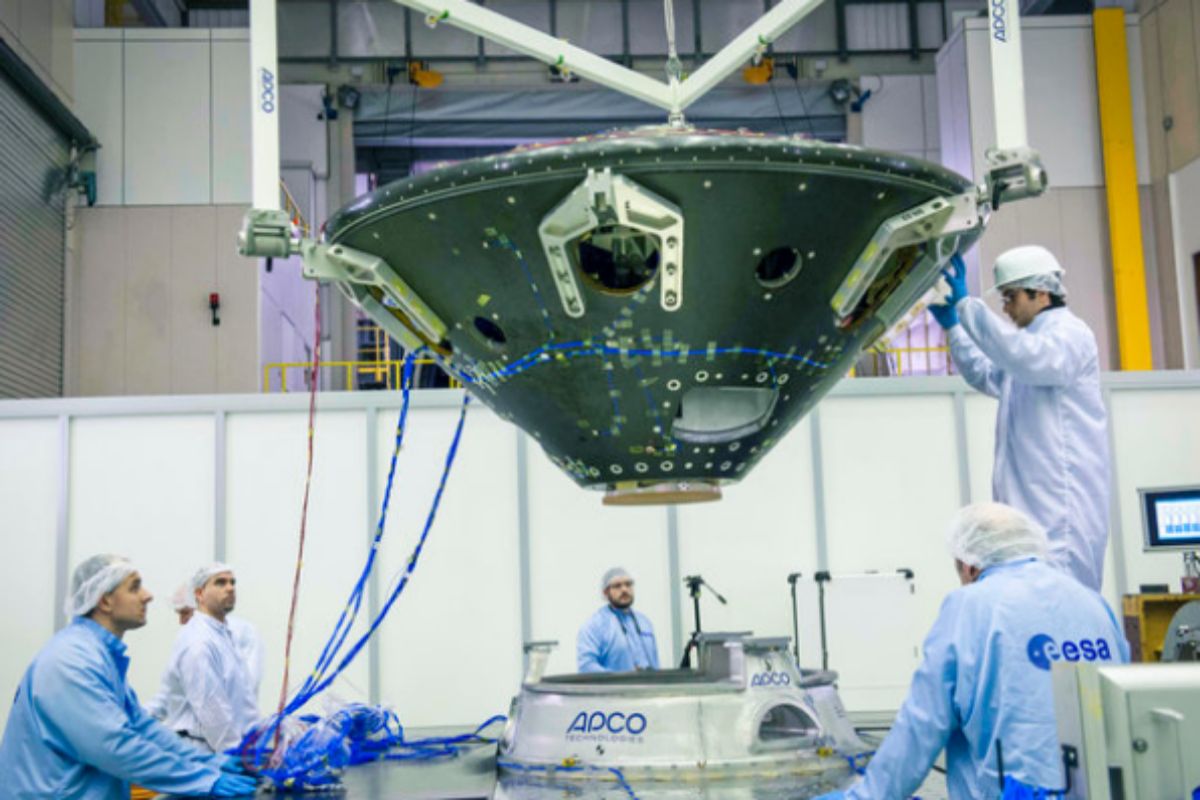- Analysis: ExoMars postponed to 2022 but team motivation remains intact
- Technology: 'part of the time' on Mars is made with Spanish technology
- Space.The challenge of stepping on Mars
There will be no European mission to Mars this year. The most negative forecasts have been fulfilled and the European Space Agency (ESA) and the Russian agency (Roscosmos) will not send next July the sophisticated robotic vehicle Rosalind Franklin, the star component of the ExoMars mission, to explore the red planet. Engineers have been unable to successfully complete all necessary component tests.
As ESA director Jan Wörner and Roscosmos director Dmitry Rogozin announced this morning at a press conference, takeoff is postponed to 2022 (between August and October), when the launch window will reopen, that is, when the distance between Mars and Earth is as short as possible and therefore the journey is shorter than at other times: "It is a very difficult decision but it is the right one," said Wörner. The top ESA president has said, however, that the mission could have been launched but they did not want to risk it because they had not been able to do all the tests. "We cannot afford any margin of error," he assured.
Wörner has also stated that, although the coronavirus has not been the main reason for postponing the mission, it has contributed because it is preventing its engineers from traveling to the countries where the tests are being carried out.
In the meeting held today, those responsible for the mission agreed that more tests of the ship with the definitive hardware and software are needed. The problem with the parachutes that the robotic vehicle will use to land is dated back to last summer, as EL MUNDO reported.
Since then, ESA engineers have successfully conducted new tests at NASA's JPL laboratory, and next March they will perform the last two tests on major parachutes in Oregon. But given the uncertainty about how the components would respond during the crucial landing phase, it has been decided to postpone the launch of this rover, which has a powerful drill that, for the first time, will allow samples of Martian soil to be obtained at two meters depth. The goal of ExoMars is to investigate whether there was life on Mars or even if there is today.
A mission of 1,500 million euros
This is the second time the takeoff of the ExoMars rover , which should have been launched in 2018, has been postponed. However, technical problems also forced it to be delayed for two years.
The first part of this mission, ExoMars2016, was successfully launched that year from the Russian Baikonur Cosmodrome. The TGO orbiting probe, which is studying the trace gases and the composition of Mars from the orbit of the red planet, and a platform, called Schiaparelli , that had to martialize to test the arrival of the robotic vehicle, traveled on that ship. However, Schiaparelli crashed, which was the first setback of the mission.
Although those responsible for the agency downplayed the failure, stressing that precisely that component was sent to test the rover's landing, that accident complicated the mission. Postponing its launch from 2018 to 2020 also increased its cost from 1.3 billion to 1.5 billion euros.
Wörner noted that "the good news is that the TGO continues to do science and send data from Martian orbit. It works well and does excellent science." "We have waited centuries to find out if Mars looked like Earth and now we are going to have to have a little more patience," said the ESA director.
According to the criteria of The Trust Project
Know more- Science and Health
- science
- Coronavirus
Coronavirus The ninth positive for coronavirus of the Community will already pass convalescence at home
ScienceNasa shows how coronavirus contamination has been reduced in China
HealthMore than 300 infections and 11 deaths in Italy due to coronavirus and war between Lombardy and the Government

